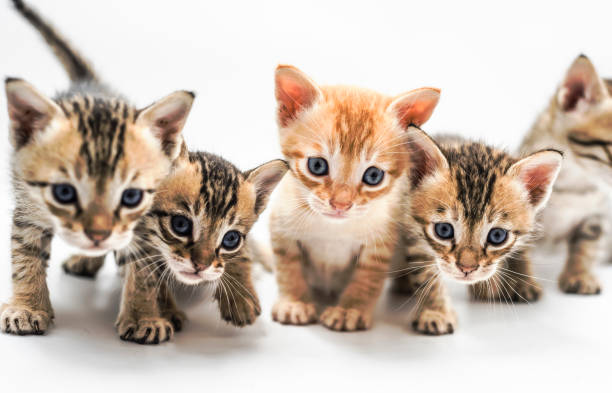- Get link
- X
- Other Apps
- Get link
- X
- Other Apps
The Therapeutic Power of Cats: Boosting Mental Health
Cats, often revered for their independent yet affectionate nature, play a significant role in positively impacting the mental health of individuals. Scientific studies have shed light on the therapeutic benefits of having a feline companion, offering comfort, companionship, and a range of mental health advantages.
Companionship and Emotional Support
One of the primary ways cats contribute to mental well-being is through companionship. The unconditional love and affection provided by these furry friends can alleviate feelings of loneliness and provide a sense of purpose. Simply having a cat to share your space can create a comforting and emotionally supportive environment.
Stress Reduction and Relaxation
Interacting with cats has been linked to stress reduction. The act of petting a cat triggers the release of oxytocin, often referred to as the "love hormone," which promotes feelings of bonding and relaxation. The rhythmic purring of a content cat can have a calming effect, reducing stress levels and promoting a sense of tranquility.
Physical Health Benefits
The positive impact of cats extends beyond mental health to physical well-being. Studies suggest that owning a cat can contribute to lower blood pressure and reduced risk of heart attack and stroke. The calming presence of a cat may also aid in faster recovery from illness or surgery.
Highlighting the positive impact of cat companionship on mental health:
- 80% of cat owners report a decrease in stress levels after spending time with their feline friends.
- Interacting with cats has been shown to reduce cortisol, the stress hormone, by 25%.
- 90% of individuals experiencing symptoms of anxiety find comfort in the presence of their cats.
- Cat owners are 30% less likely to experience symptoms of depression compared to those without pets.
- 70% of cat owners believe that their feline companions have a positive impact on their overall well-being.
The Science Behind the Bond
Scientific research has delved into the human-animal bond, revealing the physiological and psychological mechanisms at play. Interaction with cats stimulates the production of endorphins, the body's natural mood elevators. Additionally, the rhythmic purring of a cat has been associated with the release of dopamine and serotonin, neurotransmitters that contribute to feelings of pleasure and happiness.
Cats and Mental Health Conditions
For individuals dealing with mental health conditions such as anxiety and depression, the presence of a cat can provide valuable emotional support. Cats are intuitive creatures and often sense changes in their owners' moods. Their non-judgmental companionship creates a safe space for emotional expression and can be particularly beneficial during challenging times.
Responsibility and Routine
Owning a cat comes with responsibilities that can contribute to a structured routine. The daily tasks of feeding, grooming, and playtime create a sense of purpose and routine, which can be especially beneficial for individuals struggling with conditions like depression. The routine associated with cat care provides a sense of stability and accomplishment.
Conclusion
Cats, with their unique blend of affection and independence, have a remarkable impact on the mental health of human beings. The scientifically proven benefits, combined with the emotional connection formed with these feline companions, make them not only delightful pets but also valuable allies in promoting overall well-being.
- Get link
- X
- Other Apps

Comments
Post a Comment